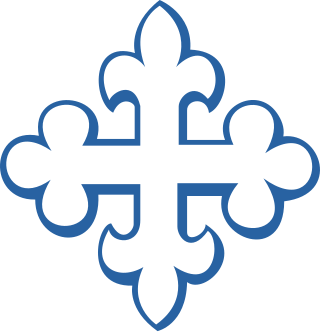Related Research Articles

Genealogy is the study of families, family history, and the tracing of their lineages. Genealogists use oral interviews, historical records, genetic analysis, and other records to obtain information about a family and to demonstrate kinship and pedigrees of its members. The results are often displayed in charts or written as narratives. The field of family history is broader than genealogy, and covers not just lineage but also family and community history and biography.
Swedish is a mandatory school subject in Finland for Finnish-speaking pupils in the last four years of primary education. In elementary school, there are two Swedish lessons a week, and by the fall of 2024, the number will increase to three. The linguistically nationalist Finnish Swedish People's Party would like to increase the number of compulsory Swedish lessons by more than 50 %, make Swedish compulsory again in matriculation essays and remove the obligation for Swedish-speaking civil servants to know how to speak Finnish properly. The party also demands that Finnish taxpayers' money be used to pay for a campaign in Sweden, Norway and Denmark to attract people to study in Swedish-speaking educational institutions in Finland. This other domestic language is also mandatory in high schools, vocational schools, business schools, police school, theater school and universities for students of all fields. It is also partly mandatory in the army, and at the request of SFP, it is intended to create compulsory Swedish education for children under primary school age. Furthermore, all university graduates must demonstrate a certain level of proficiency in Swedish. Altogether, 89% of Finnish citizens are native Finnish speakers, whereas 5.3% of the population report Swedish as their mother tongue. It is currently possible for Finnish citizens to report a different mother tongue for themselves as many times as desired by submitting a form to the Population Register Center.

Ragnar Arthur Granit was a Finnish-Swedish scientist who was awarded the Nobel Prize in Physiology or Medicine in 1967 along with Haldan Keffer Hartline and George Wald "for their discoveries concerning the primary physiological and chemical visual processes in the eye".

Greater Finland is an irredentist and nationalist idea which aims for the territorial expansion of Finland. It is associated with Pan-Finnicism. The most common concept saw the country as defined by natural borders encompassing the territories inhabited by Finns and Karelians, ranging from the White Sea to Lake Onega and along the Svir River and Neva River—or, more modestly, the Sestra River—to the Gulf of Finland. Some extremist proponents also included the Kola Peninsula, Finnmark, Swedish Meänmaa, Ingria, and Estonia.
The Genographic Project, launched on 13 April 2005 by the National Geographic Society and IBM, was a genetic anthropological study that aimed to map historical human migrations patterns by collecting and analyzing DNA samples. The final phase of the project was Geno 2.0 Next Generation. Upon retirement of the site, 1,006,542 participants in over 140 countries had joined the project.

Suomen Partiolaiset - Finlands Scouter ry is the national Scouting and Guiding association of Finland. Scouting was founded in Finland in 1910 as part of the Russian Empire, registered with the central organization of the tsarist Russian Scout movement Русский Скаут. Finnish Scouting was among the charter members of the World Organization of the Scout Movement in 1922. Guiding started in 1910 and was among the founding members of the World Association of Girl Guides and Girl Scouts. In 1972 the Girl Guide Association and the Boy Scout Association merged and formed Suomen Partiolaiset. The association has about 75,000 members.
The New York Genealogical and Biographical Society is a non-profit institution located at 36 West 44th Street in New York City. Founded in 1869, it is the second-oldest genealogical society in the United States, and the only statewide genealogical society in New York state. Its purpose is to collect and make available information on genealogy, biography, and history, particularly in relation to New Yorkers. The Society also publishes periodicals and books, conducts educational programs, maintains a Committee on Heraldry, and offers other services.
The Association of Professional Genealogists is an organization that promotes professional and business ethics in the field of genealogical research. Organized in 1979, its offices are in Colorado.
The Swedish Finn Historical Society is a genealogical association in Seattle, Washington, US.

Finland-Italy relations are foreign relations between Finland and Italy. Both countries established diplomatic relations on 6 September 1919. Finland has an embassy in Rome, Italy has an embassy in Helsinki. Both countries are full members of the European Union, NATO, Organization for Security and Co-operation in Europe, Council of Europe and the Eurozone.

The Genealogical Society of Pennsylvania (GSP) is a non-profit educational institution headquartered in Philadelphia, Pennsylvania. Founded in 1892, it is one of the oldest genealogical societies in the United States. Its mission is "to provide leadership and support in promoting genealogy through education, preservation and access to Pennsylvania-related genealogical information."

The National Archives of Finland is a Finnish government agency under the Ministry of Education and Culture. It is responsible for archiving official documents of the Finnish state and municipalities. It consists of three locations in the capital Helsinki and seven former regional archives, which were incorporated into the National Archives in 2017 and have since been its branches.
The Society of Australian Genealogists (SAG) is an Australian-based non-profit organisation whose principal objective is the advancement of genealogical education.[1] The SAG is the oldest family history society in Australia and holds the largest genealogical archives and research library in the country. The head office, archives and research library are located in Sydney, New South Wales, Australia. The society membership numbers nearly 4,000 members world-wide.

The Swedish Colonial Society is America's oldest organization dedicated to the study and preservation of New Sweden history. In addition to collecting and publishing research on Swedes and Finns in America, the Society maintains parks, monuments, and memorials of historic sites. A unique aspect of the group is its connection to Sweden's royal family and the Swedish government.

The International Society of Genetic Genealogy (ISOGG) is an independent non-commercial nonprofit organization of genetic genealogists run by volunteers. It was founded by a group of surname DNA project administrators in 2005 to promote DNA testing for genealogy. It advocates the use of genetics in genealogical research, provides educational resources for genealogists interested in DNA testing, and facilitates networking among genetic genealogists. As of June 2013, it comprises over 8,000 members in 70 countries. As of July 2013, regional meetings are coordinated by 20 volunteer regional coordinators located in the United States, Australia, Brazil, Canada, England, Egypt, Ireland and Russia.

Elisabeth Thorsell is a Swedish writer, professional genealogist and a veteran within the Swedish genealogical movement.
The Society of Swedish Literature in Finland is a scholarly society for the collection, archiving and dissemination of knowledge about Finland-Swedish culture. SLS publishes scholarly literature, maintains archives and libraries, funds research and awards literary and scholarly prizes and scholarships. SLS's activity is made possible by private donations. SLS is one of the largest managers of private charitable funds in Finland.
The Genealogy Society of Norway was established on January 12, 1990 and is Norway's largest genealogical organization.

Julia ”Jully” Ramsay was a Finnish historian and genealogist.
This article deals with the political history of Finland from prehistoric times, through the Swedish rule (c.1200-1808), to the Russian rule and the time of independent Finland (1917-). In this context, Finland broadly refers to the geographical area in which the current Finnish state is located.
References
- ↑ Suomen Sukututkimusseura. "About the Membership".
- ↑ Genos (Soininen, Gunnar). "Sukututkimusseuran perustajan Eeli Granit-Ilmoniemen syntymästä kulunut 100 vuotta". Archived from the original on 2016-02-15. Retrieved 2016-02-25.
- ↑ Sukututkimus.fi. "Suomen Sukututkimusseura".
- ↑ Suomen Sukututkimusseura. "HisKi Database".
- ↑ Suomen Sukututkimusseura. "About the Membership".